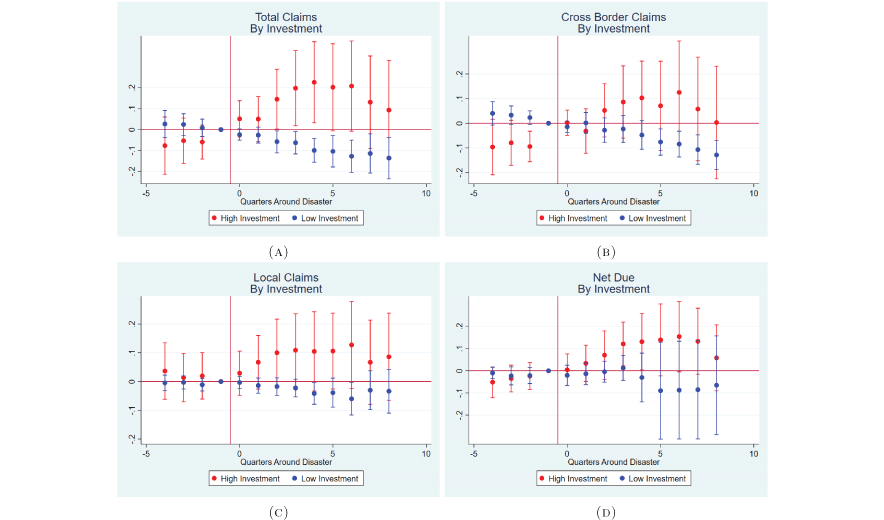Global Banks and Natural Disasters
Published: July 23, 2024
This paper shows that when natural disasters hit low-income countries, banks that operate in those countries reduce their cross-border lending. The authors estimate this effect using confidential data on international bank loan exposures. The change in lending is driven by banks with low investment levels in those affected countries and whose parent country does less trade with the countries (Working Paper 24-05).
Abstract
Natural disasters can generate large economic losses and disruptions for global financial institutions, raising the concern that these disasters may increase financial systemic risk. We use detailed data on the foreign claims and liabilities of large U.S. regulated banks to study how multinational lenders reallocate capital following large natural disasters. We find little evidence that international banks increase lending to countries after destructive disasters, which should increase the demand for funds. Instead, difference-in-differences estimates suggest that natural disasters lower cross-border lending to affected countries by 9% two years after large natural disasters. We hypothesize that damaging natural disasters exacerbate cross-border information frictions. To test this mechanism, we exploit within-country heterogeneity in monitoring costs between banks. Consistent with this mechanism, our results show that declines in aggregate lending are driven by banks with weaker economic connections to the affected countries. These findings suggest that information frictions both dampen the transmission of natural disasters and reduce the reallocation of capital through the international financial system.
Keywords: International Lending, Global Banks, Climate Finance, Natural Disasters, Information Frictions
JEL Classifications: G15, F34, G14, G32, Q54
